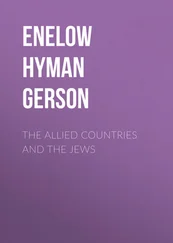Such a phenomenon could not but astonish the mass of onlookers who had hitherto not given the Jewish question a thought, and when there was added to it the great ordeal of the South African War, openly and undeniably provoked and promoted by Jewish interests in South Africa, when that war was so unexpectedly prolonged and proved so unexpectedly costly in blood and treasure, a second element was added to the growing feeling, not yet, indeed, of antagonism to Jewish power (half cultured France was Dreyfusard, and much more than half England favoured the Boer War at its origin), but of interest in the Jewish question, of curiosity, on the part of the average citizen, who had not hitherto heard of it.
The original minority which had begun to oppose Jewish power, with their extreme left wing of Anti-Semites, and their core of men whose quarrel was rather with the financial control of the modern world than with any racial problem, tended to grow. As always happens with a growing movement, events appeared to suit themselves to that growth and to promote it.
The Panama scandals in the French Parliament had already fed the movement in France. The later Parliamentary scandals in England, Marconi and the rest, afforded so astonishing a parallel to Panama that the similarity was of universal comment. They might have passed as isolated things a generation before. They were now connected, often unjustly, with the uneasy sense of a general financial conspiracy. They were, at any rate, connected with an atmosphere essentially Jewish in character.
Meanwhile there had already begun one of those great migratory movements of the Jews which have diversified history for two thousand years and which are almost always the prelude to each new disturbance in the equilibrium of the Jews and each new resuscitation of the Jewish problem in its most acute form.
The great reservoir of the Jewish race was, of course, that country of Poland which had so nobly succoured the Jews during the persecutions of the late Middle Ages. Poland had made itself an asylum for all the Jews who cared to go to it, and was now, after the infamous partition inaugurated by Prussia, still the home of something like half the Jews of the world. The hatred of the Jews entertained by all classes of Russians, the persecutions they suffered from the fact that Russia, since the partition, governed that part of Poland where they were most numerous, started the new exodus. The movement was a westerly one, mainly to the United States, but there also arose in connection with it a novel growth of great ghettoes in the English industrial towns, more particularly in London, while New York was slowly transformed from a city as free of Jewish population as London and Paris had been in the past, to one in which a good third or more of its inhabitants became either entirely Jewish or partly Jewish.
This vast immigration, which was in full swing just before the outbreak of the great war, and which was adding so active a leaven to the increasing ferment, which had even planted the beginnings of a ghetto in Paris and which was affecting the whole of the West, was supplemented by one more factor of the first importance.
Modern capitalism, by which the Jew had so largely benefited, but which he did not originate and in which prominent, though few, Jewish names, were so immixed, had for its counterpart and reaction the socialist movement. This, again, the Jews did not originate, nor at first direct; but it rapidly fell more and more under their control. The family of Mordecai (who had assumed the name of Marx) produced in Karl a most powerful exponent of that theory. Though he did no more than copy and follow his non-Jewish instructors (especially Louis Blanc, a Franco-Scot of genius), he presented in complete form the full theory of Socialism, economic, social, and, by implication, religious; for he postulated Materialism.
After Karl Marx came a crowd of his compatriots, who led the industrial proletariat in rebellion against the increasing power of the capitalist system, and began to organize a determined revolt.
Before the Great War one could say that the whole of the Socialist movement, so far as its staff and direction were concerned, was Jewish; and while it took this purely economic form in the West, in the East—in the Russian Empire—it took a political form as well, and the growing revolutionary force in that Empire was equally Jewish in direction and driving power.
Such was the situation on the eve of the Great War. Men were beginning to be thoroughly alive to what was meant by the Jewish problem. The old security was dispelled for ever; but as yet only a minority, though now a large one, was prepared to deal with that problem and to discuss it openly. All that was official, and particularly the Press, with its vast influence, had as yet refused in any department to face the realities of the position. The convention forbidding public allusion to the Jewish question was still very strong. On the surface it seemed as though the old Liberal policy still stood firm and, indeed, unshakeable. The Jews were in every place of 'vantage: they taught in the Universities of all Europe; they were everywhere in the Press; everywhere in finance. They were continually to be found in the highest places of Government and in the chanceries of Christendom they had acquired a dominant power which none could question. But the challenge against this unnatural position necessarily worked against great odds, it remained private and had great difficulty in finding expression. None the less, it extended, and by 1914 had become serious.
The immeasurable catastrophe of the war—with which the Jews had nothing to do and which their more important financial representatives did all they could to prevent—fell upon Europe. It seemed at first as though, in the face of that overwhelming tragedy, what had been so rapidly growing—I mean the debate and conflict upon Jewish claims—would be silenced. The Jews were found fighting gallantly in all the armies. Their services were generously acknowledged, though the cruel ambiguity of their situation was hardly realized. Considering that they had no national interest in the fight, it must have seemed to them a mere insanity, crucifying their nation to no purpose. For Zangwill put the matter well indeed when he said that those who eagerly and spontaneously joined the first recruiting (and these were numerous) did so "for the honour of Israel." The sacrifice was not without fruit. In its presence many a complaint was silenced and much was revealed which, but for it, would have remained unprobed. The Christian family in its bereavement saw at its side a Jewish neighbour who had lost his son in what was no concern of his race; the Christian priest witnessed the agony of the young Jewish soldier. The defender of the Western nations saw at his side not only the Jewish conscript (who should never have been called) but the Jewish volunteer. Thus, the first to enlist from the United States was a Jew, later promoted, whom I had the pleasure and honour of meeting on Mangin's staff at Mayence. I hope he may see these lines.
It looked as though in the presence of such a suffering, which the Jews shared with us, the growing quarrel between them and ourselves would be appeased. Men who had been prominent not only for their discussion of the Jewish problem, but for their direct and open antagonism to Jewish power and even to the most legitimate of Jewish claims, were now compelled to silence. Reconciliation was in the air … when, in the very heat of the struggle, came that factor, incalculably important, which now rules all the rest; I mean the factor of what is called Bolshevism .
This new Jewish movement changed the whole face of things and, coming on the top of the rest, has transformed the problem for all our generation.
Читать дальше












